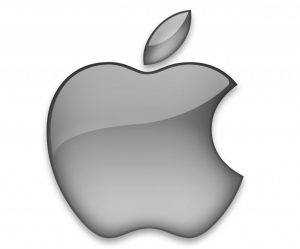 Ireland is not excited at the news it should be receiving $14.4 billion in unexpected tax revenues. The country has indicated that it will appeal Apple Inc.’s (NASDAQ:AAPL) record tax clawback in the EU General Court in Luxembourg. The decision regarding Apple’s tax bill was the biggest ever state-aid payback demand.
Ireland is not excited at the news it should be receiving $14.4 billion in unexpected tax revenues. The country has indicated that it will appeal Apple Inc.’s (NASDAQ:AAPL) record tax clawback in the EU General Court in Luxembourg. The decision regarding Apple’s tax bill was the biggest ever state-aid payback demand.
Irish Finance Minister Michael Noonan says that the government disagrees with the EU’s ruling on the matter. Ireland’s cabinet agreed in September to join Apple in appealing the Commission’s order. At the European Parliament in Brussels on Tuesday, Noonan said, “The government fundamentally disagrees with the European Commission’s analysis and the decision left the government no choice but to take an appeal to the European courts, and this will be submitted tomorrow.”
The Apple decision followed a three-year probe into corporate tax avoidance among EU countries. The European Commission found that a number of nations were offering tax deal to certain companies that were not accessible to rivals, creating an unfair, illegal system. An investigation found that between 2003 and 2014 Apple paid between 1 and 0.005 percent in annual taxes on its European profits. The European Commission’s decision would force Ireland to claw back alleged tax subsidies given to Apple unfairly.
The decision resulted in strong reactions from the U.S. Treasury Department, which released a statement saying the probes “threaten to undermine foreign investment, the business climate in Europe, and the important spirit of economic partnership between the U.S. and the EU.” The US Treasury argued that if the $14.4 billion belonged anywhere, it was back in Apple’s home country. EU Competition Commissioner Margrethe Vestager previously said that the case was structured “in a way that it’ll be upheld” in court.
Other EU nations and companies that received similar decisions in the past year are also appealing the decisions. Appeals are already pending by Luxembourg, the Netherlands and Belgium concerning their tax arrangements with other multinational corporations, including Starbucks Corp. Due to the cases’ complexity, the appeals are expected to take several years. Any appeal ruling that is challenged at the EU’s top court could see another two years added to the process.
